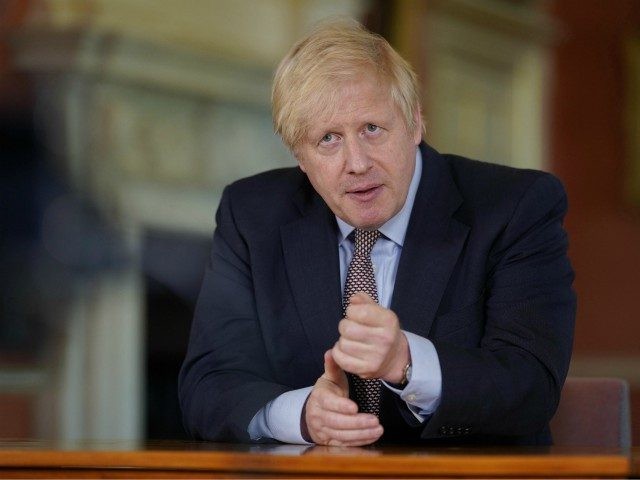Prime Minister Boris Johnson has given his clearest signal yet that he would reconsider allowing Huawei to help build the UK’s 5G network after China launched an audacious power grab on Hong Kong.
Carefully caveating his remarks with the statement that he remains a “sinophile”, Prime Minister Johnson said that “what’s happened in Hong Kong is plainly an unacceptable breach of the letter and the spirit of the Joint Declaration of principles of the basic law. It’s already having a chilling effect on free speech and civil society in Hong Kong.
“On Huawei, I’m not against investment in this country. This is an open market economy. But I don’t want to see our critical national infrastructure at risk of being in any way controlled by potentially hostile state vendors. So, we have to think very carefully about how to proceed now,” Mr Johnson told the Evening Standard in an interview published on Thursday.
Mr Johnson drew criticism from Five Eyes intelligence partners Australia and the United States when, in January, he announced that he would be allowing Huawei — which had recently been listed by the U.S. Pentagon as being controlled by the Chinese military — to build part of the UK’s future telecommunications infrastructure.
Allies had warned the UK that the “effectively state-owned” company could build a “backdoor” into British systems and facilitate spying for Beijing.
In recent months, the prime minister has said to have privately changed his mind on the Chinese firm’s involvement following the Communist state’s hostility towards Hong Kong and its cover-up of the Wuhan coronavirus. He has reportedly instructed his government to seek solutions that would allow for the removal of Huawei from all British telecommunications systems by 2023.
The British government is also believed to be exploring support for British technology companies. It is in talks with Japanese and South Korean firms about creating a viable alternative to Chinese tech.
Trump Admin: UK on ‘Slippery Slope’ After Allowing Huawei to Build British Facility https://t.co/EqYT5yX71G
— Breitbart London (@BreitbartLondon) June 24, 2020
The prime minister made the remarks after China enacted a repressive ‘security law’ on the former British colony of Hong Kong on Wednesday, which effectively outlaws pro-democracy movements. More than 370 people have been arrested following protests against the new law.
In response, Prime Minister Johnson announced in the House of Commons on Wednesday that the United Kingdom would be offering settlement rights and a path to British citizenship to the city’s three million residents, many of whom hold British National Overseas (BNO) passports. BNO passport holder Simon Cheng, who was an officer at the British consulate in Hong Kong and was tortured by Communist authorities on a business trip to China, has been offered asylum in the United Kingdom.
Brexiteer and former leader of the Conservative Party Sir Iain Duncan Smith said that “Hong Kong is now a rescue mission” and that the UK has “a moral and legal duty to make them welcome” due to more than a century of shared history.
A poll by YouGov on Wednesday found that of those aware of the Hong Kong situation, 64 per cent of Britons were in favour of the government’s proposals to help some Hong Kong citizens settle in the UK, with just 22 per cent disapproving (14 per cent answering “don’t know”).
However, Foreign Secretary Dominic Raab said that it is possible that China will simply stop Hong Kongers leaving the city.
Mr Raab said on ITV’s Peston that “ultimately we need to be honest that we wouldn’t be able to force China to allow BN[O]s to come to the UK”.
China has subsequently vowed retaliation against the United Kingdom, saying “the British side will bear all the consequences.”
Implying that the Communist state would lay claim to Hong Kongers, China’s ambassador to the UK, Liu Xiaoming, said that “all Chinese compatriots residing in Hong Kong are Chinese nationals, whether or not they are holders of the British dependent territories citizens passport or the British national (overseas) passport”.
Farage: UK Must Get Tough on China, Biggest Geopolitical Struggle Since Fall of Berlin Wall https://t.co/j3eJkDhXuH
— Breitbart London (@BreitbartLondon) June 2, 2020

COMMENTS
Please let us know if you're having issues with commenting.